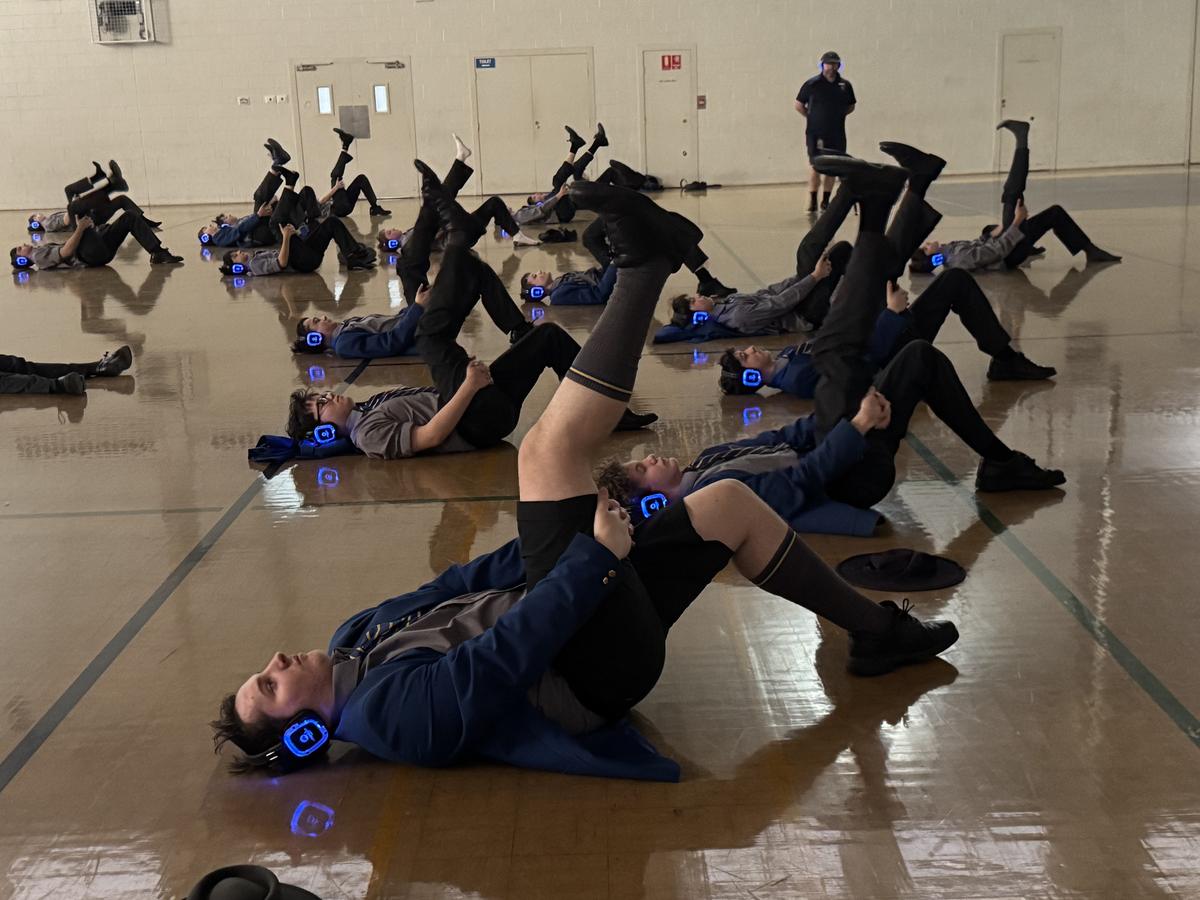Head of Students News
Mr Phill Holding

Head of Students News
Mr Phill Holding
For the safety and wellbeing of all students, no scheduled medications are to be kept in students' school bags at any time. All such medications must be:
This policy ensures that medications are stored securely and administered correctly, in accordance with medical guidance and school health protocols.
If your child requires scheduled medication during school hours, please ensure the necessary documentation is completed and submitted with the medication directly to the Health Centre or phone the Health Centre on 3858 4618.
We appreciate your cooperation in maintaining a safe and supportive environment for all students.
The boys will be returning in Term 4 wearing their summer uniform. Students in Years 5 to 11 will wear the College grey short-sleeved shirt and shorts/trousers, whilst the Year 12 students will continue to wear their blue long-sleeved shirts with tie and shorts/trousers.
The Year 11 social will be held on Thursday 23 October at Victoria Park Golf Club, Herston Road, Herston. As in past years, this occasion will provide a positive and functional social opportunity for the students involved. Please use this link to purchase tickets: Year 11 Social.
Tim Walker - Pastoral Leader
Understanding the growing challenges related to mental health among young people is an important consideration. Anxiety, depression, and self-harm are all causes for concern. At Marist this term, there has been a specific focus on a strengths-based approach to mental health and wellbeing. In Week 7, we acknowledged the National Week of Action Against Bullying and the impacts on mental health. In the classroom, we unpacked positive psychology strategies such as expressing gratitude and performing random acts of kindness (Year 8) as well as SoundOff practical mindfulness activities and help-seeking/peer support strategies in Year 10, amongst other things.


In schools, we often talk about the end of Term 3 being the “red zone”, where students, teachers, and parents feel their mental wellbeing is taking a hit. Factors like academic pressure, social media, family dynamics, and societal expectations, are contributing to these issues. It's therefore crucial for parents and caregivers to take action early, remove the stigma around discussing mental health, and offer accessible support to address these issues and the wellbeing of their children.
R U OK?Day is an initiative that focuses on preventing suicide by encouraging meaningful personal connections and helping informal support networks to help recognise the signs of distress. We urge all families to take part, emphasising the value of genuine human relationships and reminding everyone to ask the important question, "Are you OK?"
Engaging in R U OK?Day activities goes beyond the classroom; it's a commitment to our students' overall development. By talking openly about mental health, Marist College Ashgrove can be a safe space where students feel understood, valued, and supported. As parents and caregivers, you can contribute by fostering open conversations, normalising feelings, and breaking down mental health stigmas. Participating in R U OK? Day promotes compassion and shows our dedication to the wellbeing of our entire school community, reaffirming that together, we can truly make a difference. Making your ‘check ins’ more regular is the next challenge, creating a culture of care.
This Special Report provides guidance on how to talk to your child about mental health and engage in meaningful discussions.
Here is the link to your Special Report: https://marash.qld.schooltv.me/wellbeing_news/special-report-r-u-ok-day
The attached article explores the evolving landscape of student wellbeing within the contemporary Marist College Ashgrove educational setting, highlighting an emerging shift from a traditional model of pastoral care to a strengths-based approach grounded in the principles of positive psychology, providing some tips for parents. Drawing on foundational theories such as Self-Determination Theory and the father of positive psychology, Martin Seligman’s PERMA model, the article positions adolescence as a critical developmental stage marked by both vulnerability and potential for ‘flourishing’ when it comes to their wellbeing.
It introduces a multidimensional framework of sustainable wellbeing - encompassing happiness and life satisfaction, mental and physical health, meaning and purpose, character and virtue, and close social relationships - as a guiding structure for the school’s emerging wellbeing strategy. Through contextual examples from Marist College Ashgrove, including student reflections and community engagement, the article advocates for a holistic, relational, and inclusive approach to wellbeing that aligns with the values of Marist education and supports our young people to flourish.